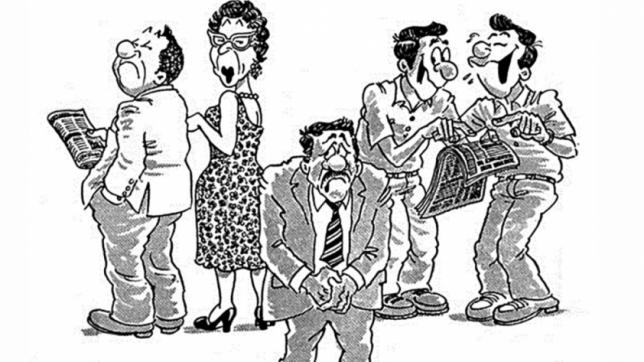This article has been written by Sai Manoj Reddy. L pursuing a Certificate Course in Advanced Civil Litigation: Practice, Procedure and Drafting from LawSikho.
Table of Contents
Introduction
We often hear celebrities filing defamation suits against newspapers or media houses. It became quite a news when Indian cricketer, Ravindra Jadeja filed a defamation suit against a Rajkot based newspaper called Aab Tak. The newspaper had published reports of the cricketer having contacts with a person accused of charges of land grabbing and extortion.
Before we delve into the case, it’s important to understand to why defamation suits are filed. Next to life, a man cares most for his reputation in society, some people prefer death over living a life of ignominy and disgrace. We have seen many cases where young people, celebrities, authors, businessmen etc., have committed suicide when something lead to them losing reputation and status in the society. We have even heard about the stories of Rajput women committing suicide by jumping into fire rather than getting caught by the Moghul invaders and living a life of disgrace and shame at the cost of their reputation. . It can also be a great motivator. On careful analysis of the human mind, one will find this element of longing for the name and reputation as the basic motive of most of the actions. Celebrities, authors, scientists, sports persons, lawyers and even a common man have in the innermost recesses of their hearts a longing to earn a name in the society. Thus, law gives protection to a man’s reputation, as it gives protection to his life and property using the law of defamation.
What is defamation?
“Defamation refers to any deliberate false communication, either written or spoken, that can harm a person’s reputation or decreases the respect, regard or confidence of a person; or induces disparaging, or a hostile or disagreeable opinion or feeling against said person.”
If we go a little deeper into the definition of defamation then there are two types of defamation which can be written (libel) or oral(slander). When defamation is caused by a printed or published material then it is called libel and when it is caused by oral manner like public speeches, interviews etc., then it is called slander.
Brief facts of the case filed by Ravindra Jadeja
Famous Indian cricket player Ravindra Jadeja had filed a defamation suit in 2015 against a Rajkot based newspaper called Aab tak. The newspaper has published an article in November 2014 where it has stated in the news report that Ravindra Jadeja has links with a criminal and land grabber Mr. Bali Dangar who is facing charges for extortion and land grabbing among other crimes. Denying this alleged link with the criminal Ravindra Jadeja has filed a defamation suit against the newspaper and its editor Mr. Satish Mehta demanding Rs.51 Crores as damages for the false report published by the newspaper which has damaged the reputation and status in the society.
Mr. Hiren Bhatt, the lawyer representing Jadeja in this has said that “The paper had published the news without verifying it and the news has damaged the reputation of my client. Jadeja has no links or has never met Dangar in his life.” He also said that a show cause notice had been issued to the newspaper but there was no reply hence Jadeja was left with no other option but to file a suit in the court seeking damages for loss of reputation.
The legal framework of defamation in India
In India, defamation is both a civil as well as a criminal offence. Under civil law, defamation is punishable as a tort by awarding damages to the victim/claimant. Under criminal law defamation has been dealt under Sections 499 and 500 of the Indian Penal Code, 1860. Criminal defamation is classified as a bailable and non-cognizable offence which means police can arrest the offender only after obtaining a warrant from a Court.
There is also another aspect to the law of defamation and the fundamental right to free speech under Article 19 of the Indian Constitution. Article 19 gives freedom of speech to the citizens of India and at the same time this is not an absolute right. There are some reasonable restrictions allowed to the freedom of speech and defamation is one of such reasonable restrictions.
Essentials of defamation in India
- Generally for any action/publication to be called as defamation, it is required that the publication has to be false or incorrect and it should have been done without the consent of the allegedly defamed person/victim.
- Words or pictures are interpreted according to common usage in everyday life and in the context of publication.
- Injuring feelings does not amount to defamation; there must be loss of reputation to the person allegedly defamed. It is not necessary that the defamed person/victim be named but it must be ascertainable.
- There are some cases where a class of persons or an association is considered to be defamed only if such publication refers to all of its members particularly if the class or association is very small- or if particular members are specially imputed.
As we have seen earlier in this article, there are two types of defamation: libel and slander. The damages recoverable and the way the court tries these two types of defamation is completely different. Generally, the lawsuits filed for libel undertake to redress all injurious consequences of the defamation under the category of general damages, and if the defamation involves loss of reputation it is called special damages if the defamation involves specific economic loss then damages are claimed under this category. Whereas in a lawsuit for slander one can only recover special damages; however, jurisdictions in some countries do not make this distinction between libel and slander and treat defamation as one.
Essentials in criminal defamation
As we have seen earlier in the article Criminal Defamation is defined under Section 499 of the Indian Penal code (IPC) and the punishment for it is given under Section 500 of IPC. The definition under Section 499 is a very broad one with four explanations and ten exceptions to it. If any person is found guilty of defamation under Section 499 then he will be punished with a simple imprisonment for up to two years or with a fine or with both as stipulated under Section 500 of IPC.
Essentials under criminal defamation are:
- The publication has to be either in words, signs etc., directing towards certain person or group of persons;
- The intention of the person to defame other;
- The publication has to be intended to harm the reputation of a person or group of persons;
- The offence has to be proved beyond a reasonable doubt;
If the publication falls under any of the exceptions given in Section 499 of IPC then it is not considered as defamation and those exceptions can be used as defence in proving that the publication does not constitute the offence of defamation. Some of the defences provided are truth, good faith for larger public good, criticism of a public servant doing his duties, publication of true proceedings of court, opinions on merits or work of an author.
Essentials in civil defamation
As we have seen earlier in the article civil defamation is tried as a tort. A person who is defamed has to file a civil suit for damages before a court. The damages claimed can be general damages or they can also be specific damages like economic loss etc.
Essentials in civil defamation are:
- Statements made or published must be false and incorrect;
- The publication has be made without the consent of the defamed person/victim;
- Publication to be in such a way that it injures the reputation of the person or a class of persons;
- The publication has to be directed towards a person or group of persons;
- The publication has to be available to the public in general or to a reasonable amount of people.
In simple words, for a case of civil defamation it must be proved that the statement made is false, written, defamatory and published.
The defences in civil defamation are similar to that of criminal defamation. Truth and reports based on true incidents are the biggest defences in civil defamation cases.
Analysis and conclusion in the light of Ravindra Jadeja’s case
Based on the explanation of the legal framework and essentials of the defamation case the present case filed by Ravindra Jadeja falls under the category of civil defamation. A civil suit has been filed by him for damages in tune of Rs.51 Crores.
The information regarding whether the damages are general or specific has not been given out yet but we can say that in the case of Ravindra Jadeja there is a high chance of him losing on many brand deals and cancellation of existing commercial contracts by brands due to the defamatory report published by the Aab tak newspaper linking Jadeja to a criminal who is facing charges of extortion and land grabbing. All it is needed for a brand to cancel a contract is a slightest change in public perception of a celebrity. This defamatory news report might have caused huge economic loss to Jadeja as it degraded his reputation in the eyes of all the people who read the news report and believed it to be true.
There are many similar examples where a newspaper publishes some report speculating or alleging something negative against a famous person, due to which they suffer huge economic losses due to a chain reaction of perception change in the eyes of people and companies and brands backing out of contracts entered with such famous persons. One of the best examples recently is the divorce of Hritik Roshan and him losing brand deals where he was casted for portraying a husband or father. Another recent example is the famous cricketer Sourav Ganguly who was brand ambassador for Fortunegroup’s refined oils where he says “Freedom refined oils are best for heart health” when he got a heart stroke the brand stopped showing those ads immediately. As I said, the slightest change in perception in the eyes of people is all it takes for celebrities and famous people to lose huge contracts and economic losses.
In the light of the above I would like to conclude that, defamation against famous personalities and celebrities is a very sensitive issue which can cause huge economic losses and sometimes even ruin their career. Courts in India have a tough job balancing the fundamental rights and defamation in such types of cases. In many landmark cases the Hon’ble Supreme Court has after a detailed scrutiny and references to plethora of cases on each subject matter, resorted to the rule of harmonious interpretation and adopts the doctrine of balancing of fundamental rights.
References
- https://ili.ac.in/pdf/paper10.pdf.
- https://lexlife.in/2020/05/03/defamation-law-in-india.
- https://www.indiatoday.in/education-today/gk-current-affairs/story/indian-cricketer-ravindra-jadeja-filed-defamation-suit-against-rajkot-newspaper-236759-2015-01-21
- https://www.sportskeeda.com/cricket/ravindra-jadeja-files-defamation-suit-against-rajkot-newspaper.
Students of Lawsikho courses regularly produce writing assignments and work on practical exercises as a part of their coursework and develop themselves in real-life practical skills.
LawSikho has created a telegram group for exchanging legal knowledge, referrals, and various opportunities. You can click on this link and join:
 Serato DJ Crack 2025Serato DJ PRO Crack
Serato DJ Crack 2025Serato DJ PRO Crack










 Allow notifications
Allow notifications


